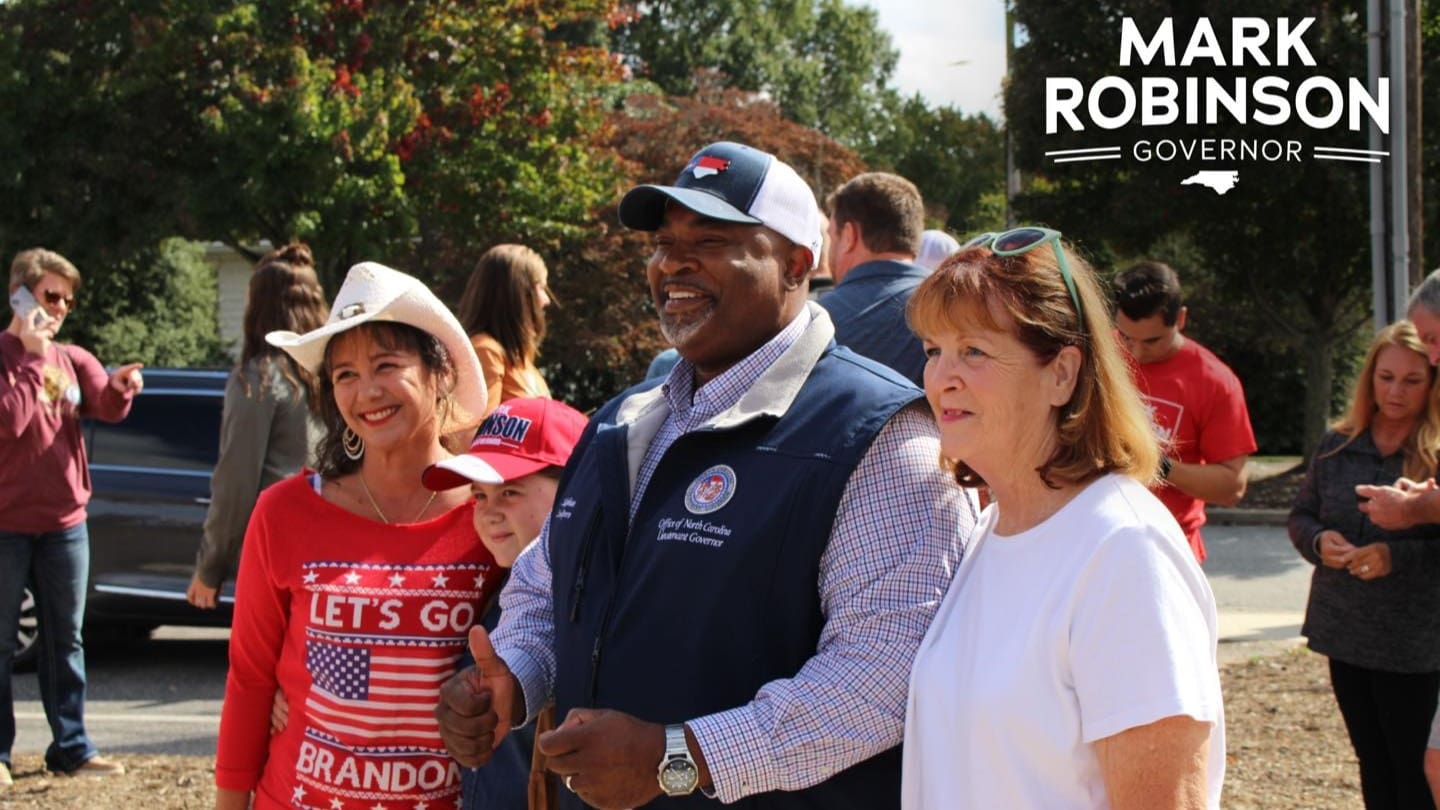The United States will hold a dizzying array of state and federal elections this year, so European observers will necessarily focus their attention on the presidential contest and a handful of others. On paper, the North Carolina governor race wouldn’t likely count among them, but this year it should.
North Carolina politics is fascinating in its own right. The Tar Heel State is a microcosm of interstate demographic shifts, class conflict, and the role of these forces in American politics.
The state’s tremendous population growth, heavily driven by migrants from northern states, has continued unabated since at least the 1980s. Charlotte is arguably America’s banking ‘second city’ after New York. The New York City-to-Charlotte pipeline alone accounts for 6,500 new residents every year. Bank of America has been among the companies steadily moving employees from locales like New York and New Jersey to Charlotte; it became the primary tenant in a second downtown skyscraper in 2019. The ‘Research Triangle’ of Raleigh, Durham, and Chapel Hill continuously attracts white-collar workers with elite university degrees—bread-and-butter Democratic voters; in 2021, Apple announced it would construct an East-Coast hub there. The state’s large rural-conservative population outside of metro areas like Charlotte, Raleigh, and Greensboro has preserved a Republican lean that has evaporated in other parts of the Sun Belt. If Texas remains just beyond the Democrats’ reach, North Carolina must be perilously close to its tipping point.
Amidst those circumstances, this year’s gubernatorial race is especially intriguing, thanks to the presence of Republican candidate Mark Robinson, the current lieutenant governor and indisputable political outsider. Europeans ought to learn his name.
Robinson announced himself on the local stage in April 2018, when his pro-gun-ownership speech at a Greensboro city council meeting went viral. At the time, he worked in furniture manufacturing and took history classes with hopes of becoming a teacher. Later that year, Robinson addressed the National Rifle Association’s annual convention. By 2020, he was elected as Lieutenant Governor of North Carolina, the second-highest elected position in the state. It’s the kind of trajectory that simply doesn’t happen in American politics.
Raw political talent explains at least part of this trajectory.
Robinson pairs the figure of an American football player with the exploits of a political firebrand.
The council speech that launched his career has not been his only viral moment. In a speech to an evangelical church audience, for example, Robinson proclaimed, ‘Two-plus-two don’t equal transgender. It equals four. You need to get back to teaching [schoolchildren] how to read, instead of teaching them how to go to hell. Yeah, I said it, and I mean it.’ While his courage is admirable, the lieutenant-governor’s rhetorical approach is the kind that tends to haunt candidates outside the most partisan (Republican or Democrat) states, but perhaps this moment in American politics is Mark Robinson’s time.
Robinson’s campaign is worth following for three reasons. First, he is a rare working-class candidate at a time when the Democratic Party has solidified its hold on the corporate elite and the Republican Party (halfheartedly) jockeys for working-class voters, whom Democrats long took for granted and Republicans long ignored. Second, he will provide a barometer on the Left’s ability to wage identity-grievance warfare, in the very state where it took one of its most prominent scalps eight years ago. Third, he offers an interesting case study on black and Latino voting behavior: working-class men from both groups have trended noticeably toward the Republican Party, and Robinson could plausibly ride Trump’s coattails—or enhance them—in this regard.
Working-Class Realignment
President Trump ushered in a new era of American class politics. A key element of his success has been the working-class voter who previously voted Democrat or didn’t vote at all. Remarkably, this is the same party whose previous presidential nominee was the Mitt Romney of Bain Capital fame. Arguably the most prominent figure advocating for a working-class-oriented Republican Party is Ohio Senator J.D. Vance, author of the bestselling autobiography Hillbilly Elegy. The revolution is far from secure, though, and many within the Republican coalition yearn for the party to return to its country-club past.
Maintaining and building on Trump’s realignment will require legitimate working-class voices under the GOP tent. Trump is a veritable hero to many working-class Americans, but he is the first to note he is a billionaire real-estate and television mogul. Vance’s life story and personal triumphs are remarkable, but he ultimately sports a Yale law degree and a résumé with corporate-law and venture-capital credentials.
The changing Republican Party is short on figures like Mark Robinson.
Here exists reason for caution, as well as opportunity. As a true political outsider and ‘average guy,’ Robinson might be especially susceptible to persuasion from powerful corporate interests. On the CPAC talk circuit, where he has expanded his reputation, Robinson has promoted the stance that socialism lurks behind every corner. Setting aside the veracity of these claims, one should note this argument has repeatedly failed to galvanize voters, as numerous losing Republican candidates can attest. ‘Cutting taxes and reducing spending are among Robinson’s priorities for the state,’ noted Axios after talks with a campaign spokesman recently. It will be a missed opportunity if his campaign loses sight of populist working-class priorities.
Identity-Grievance Warfare
In 2016, Republican Governor Pat McCrory was popular and seemed likely to win reelection comfortably. Enter an alphabet controversy. After the Charlotte city council passed a radical ordinance flouting gender distinctions in the city, the state legislature was certain to act. It did so with House Bill 2, stipulating that public bathroom usage align with an individual’s birth-certificate gender, which Governor McCrory signed into law. Corporate and establishment fury was swift and severe.
Money and invective poured into the state. PayPal and Deutsche Bank were among the corporate entities to employ now-familiar economic blackmail techniques. The NBA pulled its All-Star Game from Charlotte. Bruce Springsteen and Pearl Jam canceled concerts. Six left-wing states and numerous left-wing counties across the country enacted travel bans for government employees. Democratic groups peppered voters with ads decrying an economic catastrophe in the state. McCrory’s campaign countered, ‘It’s just common sense.’
When the dust settled, Democratic challenger Roy Cooper had won by 10,000 votes in a state Donald Trump carried and in which Senator Richard Burr won reelection (voting irregularities and extended poll hours in heavily Democratic Durham County might not have won Cooper the election, but they certainly didn’t hurt him). It offers a striking example of what corporate, donor, and celebrity power can achieve by bullying an electorate.
Eight years later, the milquetoast McCrory would probably win comfortably. Last year’s backlash against Bud Light and Target, among other entities, suggests American society has reached a breaking point over identity posturing. Robinson’s campaign will be an interesting test. He is considerably more controversial than McCrory-type Republicans and has offered plenty of kindling to stoke the rage of out-of-state donors and PACs. His gubernatorial bid certainly will attract more vicious opposition than did his successful 2020 campaign. For what it’s worth, McCrory is among the major North Carolina Republicans who has refused to endorse Robinson.
People Who Look Like Me
Politicians and corporate executives are fond of extolling representation, diversity, and seeing ‘people who look like me’. Expect that talk to quiet around the Tar Heel State as Robinson seeks to become North Carolina’s first black governor.
One topic that won’t meet with media silence is
the growing shift toward the Republican Party of black and Latino voters, particularly men.
Trump’s comfortable 2020 wins in Florida and Texas showcased this trend, and recent polls suggest it is accelerating. According to Axios, Democrats’ advantage among nonwhite voters sits at its lowest in over 60 years. Black and Latino men report affinity for Republicans that has not existed since the 1950s.
Can Robinson at least benefit from this trend, if not amplify it, in a year in which Trump will drive large voter turnout? Corporate journalists, like this Charlotte Observer columnist, have been quick to answer ‘No.’ In the 2022 midterms, just 43 percent of registered black voters cast ballots in North Carolina. Infrequent black voters could very well be underrepresented in polls, particularly if they are supporting an anti-establishment candidate like Robinson. Some fascinating demographic factors will collide in North Carolina this November.
Furthermore, the Biden Administration has often elevated race-consciousness to insulting levels. In one recent example, the federal Equal Employment Opportunity Commission filed suit against gasoline-station chain Sheetz Inc., claiming that the company’s policy of rejecting applicants with criminal backgrounds is disproportionately harmful to racial minorities. By this standard, the scrutiny of Robinson’s controversial Facebook comments from over a decade ago—when he was a racial minority presumably earning a modest income and lacking any discernible ‘privilege’—seems rather duplicitous, even for politicians. If anyone can make a mockery of this kind of societal incongruence, Robinson is a good bet.
An Island to Himself?
State polls (rather than national ones) are notoriously unreliable, and the election is still a half-year away. Unsurprisingly, polls on this race vary. Media have showcased polls unfavorable to Robinson, like this recent Quinnipiac University poll that shows him trailing by 8 percent in a head-to-head matchup with Democrat Josh Stein, and 7 percent when third-party candidates are included.
Conventional wisdom among pundits suggests Robinson will lose. One strategist who has worked for unpopular Republican Senator Thom Tillis asserted, ‘I expect him to be an island to himself by the time November rolls around.’ Perhaps, as establishment wisdom suggests, Robinson will make incriminating statements on the campaign trail and deter voters. His natural stage presence and pugnacity might just as likely deliver some election-winning moments.
Democrats will employ their now-familiar rhetoric about ‘decorum’ and ‘fitness for office’ on behalf of Ivy League-educated attorney Josh Stein. Media too will focus continually on this framing of the race, though it is a distraction. Stein’s very platform is more deserving of contempt than anything Robinson could ever say. This author and Greensboro native hopes North Carolinians will reach the same conclusion.








